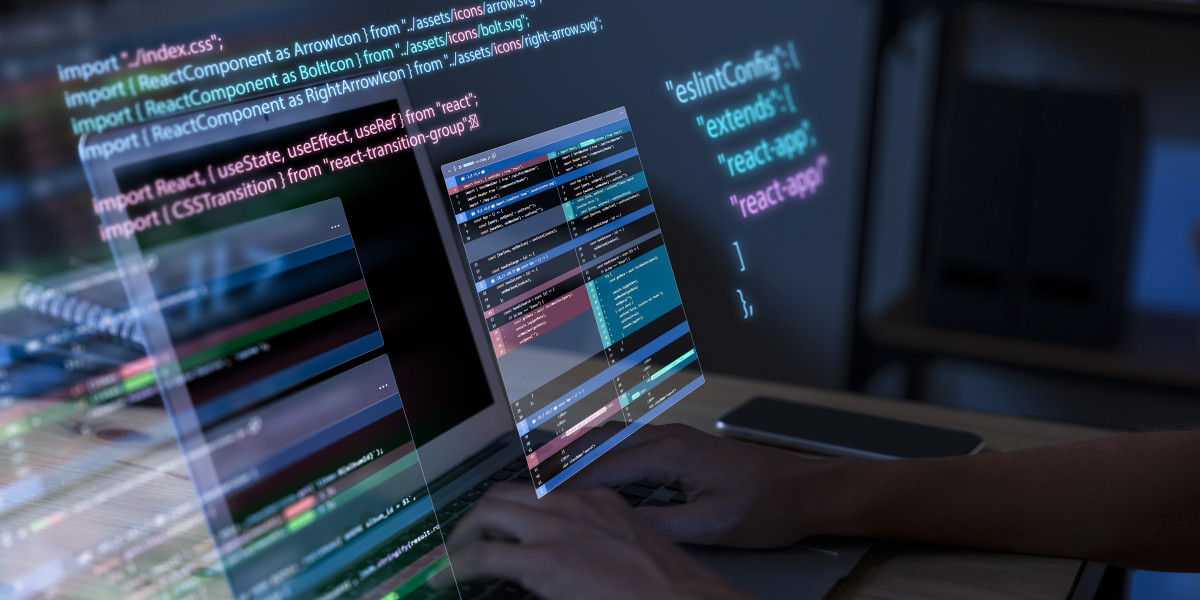Introduction
Machine learning is a subset of artificial intelligence (AI) that focuses on the development of algorithms and statistical models that enable computer systems to perform tasks without explicit programming. The primary goal of machine learning is to enable computers to learn from data and improve their performance over time, allowing them to make predictions, classifications, or decisions based on patterns and experiences.
Key Concepts in Machine Learning:
Training Data: Machine learning algorithms require data to learn from. This dataset, often called training data, contains examples and corresponding outcomes or labels that the algorithm uses to identify patterns.
Features and Labels: In the context of machine learning, features are the input variables or attributes of the data, while labels are the corresponding outputs or outcomes that the algorithm aims to predict or classify.
In today's digital age, the demand for coding skills is skyrocketing. Whether you're a student, professional, or someone looking to switch careers, learning to code online can open up a world of opportunities. One of the most exciting and rapidly growing fields within coding is machine learning. In this comprehensive guide, we will explore the ins and outs of learning coding online, with a special focus on machine learning courses.
The Importance of Learning Coding Online
Learning to code online has become increasingly popular due to its accessibility and flexibility. Traditional classroom settings are no longer the only avenue for acquiring coding skills. Online platforms offer a plethora of resources, enabling learners to progress at their own pace, access a wide range of materials, and connect with a global community of like-minded individuals.
Why Learn Coding?
Before diving into the world of machine learning, it's essential to understand why learning coding is so valuable. Coding is the backbone of today's technology, powering everything from websites and mobile apps to complex data analysis and artificial intelligence. Acquiring coding skills opens doors to various career paths and enhances problem-solving abilities, critical thinking, and creativity.
Choosing the Right Programming Language
With numerous programming languages to choose from, beginners often find it challenging to decide where to start. Popular languages for beginners include Python, JavaScript, and Ruby. Python, in particular, stands out for its readability and versatility, making it an excellent choice for those just starting their coding journey.
The Evolution of Machine Learning
As technology advances, machine learning has emerged as a key player in shaping the future. This subset of artificial intelligence allows computers to learn and make decisions without explicit programming. From recommendation algorithms on streaming platforms to image recognition in healthcare, machine learning is ubiquitous. As such, understanding the basics of machine learning can be a game-changer i the coding landscape.
Choosing the Right Machine Learning Course
Once you've grasped the fundamentals of coding, the next logical step is to delve into machine learning. Online platforms offer a myriad of machine learning courses, catering to different skill levels and interests. Some popular choices include Coursera, edX, and Udacity. When selecting a course, consider factors such as the instructor's reputation, course content, and hands-on projects.
Understanding the Basics: Supervised and Unsupervised Learning
Machine learning is a vast field, but beginners can start by understanding its two main categories: supervised and unsupervised learning. In supervised learning, the algorithm is trained on labeled data, making predictions based on known outcomes. Unsupervised learning, on the other hand, involves analyzing data without predefined labels, allowing the algorithm to identify patterns and relationships independently.
Building Practical Skills with Hands-on Projects
Theory is essential, but applying what you've learned through hands-on projects is crucial for mastery. Many machine learning courses include practical exercises and projects to reinforce concepts and build real-world skills. Whether it's creating a sentiment analysis tool or building a recommendation system, hands-on projects provide valuable experience and showcase your abilities to potential employers.
Joining Coding Communities
Learning to code is more enjoyable and rewarding when you're part of a community. Online forums, social media groups, and coding communities provide a platform to ask questions, share experiences, and collaborate on projects. Engaging with the coding community not only enhances your learning but also opens doors to networking opportunities and mentorship.
Staying Updated with the Latest Trends
The tech industry is dynamic, with new tools, libraries, and frameworks constantly emerging. As a coder, staying updated with the latest trends is crucial. Follow influential blogs, subscribe to newsletters, and participate in webinars to stay informed about industry advancements. Machine learning, in particular, is a rapidly evolving field, and staying abreast of developments ensures you remain competitive in the job market.
Advanced Topics in Machine Learning
Once you've mastered the basics, consider exploring advanced topics in machine learning. This may include deep learning, natural language processing, and reinforcement learning. Advanced courses often delve into more complex algorithms and techniques, providing a deeper understanding of how machine learning models work.
Showcasing Your Skills: Building a Portfolio
As you progress in your coding and machine learning journey, building a portfolio becomes crucial. A portfolio is a collection of your projects, demonstrating your skills and capabilities to potential employers. Include detailed descriptions of each project, the problems you solved, and the impact of your work. A strong portfolio not only showcases your technical abilities but also highlights your creativity and problem-solving prowess.
Preparing for the Job Market
With coding and machine learning skills in your arsenal, you're well-equipped for various job opportunities. Tailor your resume to highlight your coding experience and machine learning projects. Leverage online platforms like LinkedIn to connect with professionals in the field and explore job openings. Additionally, consider participating in coding competitions and contributing to open-source projects to enhance your visibility in the coding community.
Conclusion
Learning to code online is a transformative journey that opens doors to a world of possibilities. With the right resources, dedication, and a focus on continuous learning, you can master coding and make a significant impact in the ever-evolving tech landscape. Machine learning, as a subset of coding, adds an exciting dimension to your skill set, allowing you to contribute to cutting-edge advancements and innovations. So, embark on your coding journey, explore the world of machine learning courses, and unlock the doors to a fulfilling and dynamic career in the world of technology.



